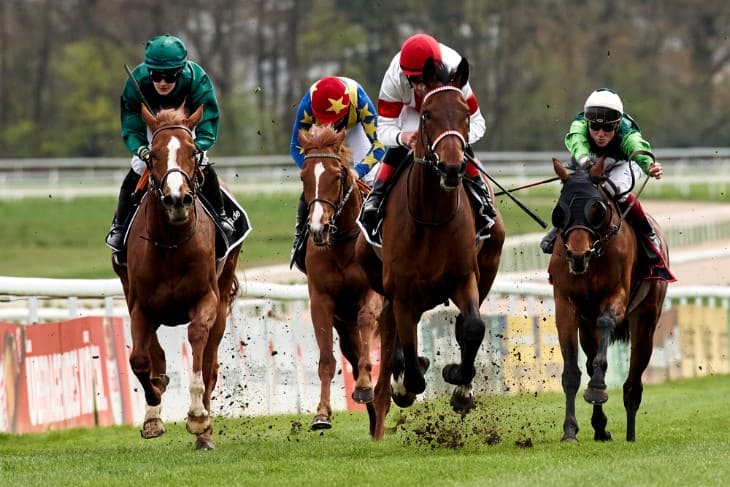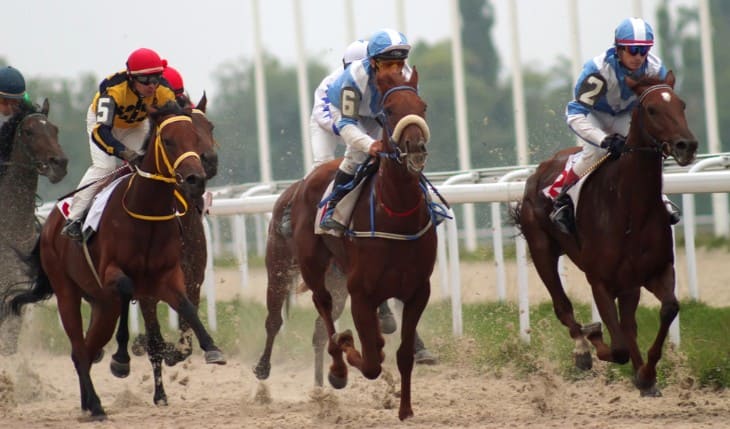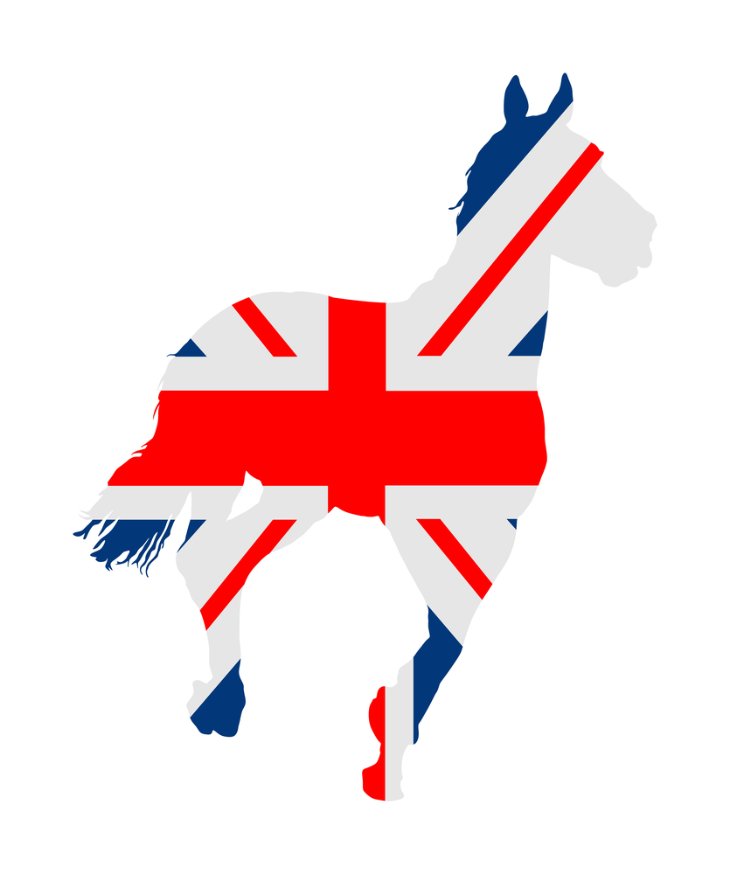Horse racing has been a fundamental component of British culture for generations. The sport, characterized by its competitive nature and distinctive fashion, has consistently held the nation's attention. This analysis aims to examine the deep connection between horse racing and the broader spectrum of British popular culture.
Racing Royalty: The Ascot Effect and the British Aristocracy
One cannot discuss horse racing's influence on UK pop culture without highlighting the Ascot Races, an event known for its connection to royal traditions and formal ceremonies. The Royal Ascot is a prominent five-day racing event each year, highlighting top-tier horses as well as the notable attire of those attending. The Royal Enclosure, designated for elite attendees, features prominent hats, well-fitted suits, and accessories that draw as much attention as the races themselves.
The Ascot Races have consistently drawn members of the British royal family, adding a touch of glamour and prestige to the proceedings. Queen Anne's vision of establishing Ascot as a prime racing venue has transformed it into a magnet for not only racing enthusiasts but also the fashion-conscious. The event's impact on British fashion trends is undeniable, with attendees setting trends and fashion houses vying for a spot in the limelight.
The Ascot effect ripples beyond the racetrack, influencing fashion runways, millinery designs, and even inspiring themed parties and weddings across the country. It has become an annual spectacle that embodies the fusion of aristocratic tradition and contemporary allure, encapsulating the enduring relationship between horse racing and the upper crust of British society.

Betting Bonanza: The Intersection of Horse Racing and Gambling Culture
As the horses race along the track, betting becomes a significant aspect of the event. The connection between gambling and horse racing has been integral to UK popular culture for a long time. Many people are drawn to placing bets on these races, enhancing the overall experience.
From the local bookmakers on street corners to the glitzy betting shops, betting on horse racing is deeply ingrained in British society. The Grand National, arguably the most iconic steeplechase event, is a prime example of this synergy. Every year, millions of Britons place their bets, hoping to strike it lucky and back a winner. The race has become a shared experience, a communal thrill that brings people from all walks of life together.
The betting culture around horse racing has not only created a sense of camaraderie among punters but has also contributed significantly to the UK's economy. The betting industry has evolved with the times, embracing digital platforms and online betting, making it more accessible and convenient than ever before. The annual Cheltenham Festival, a highlight in the racing calendar, sees a surge in bets as enthusiasts and novices alike engage in friendly competition to predict the outcomes of each race.
Fashionably Fast: Horse Racing's Influence on UK Style and Trends
While the horses race to the finish line, the spectators participate in a race of their own – a fashion race, that is. Horse racing events have played a pivotal role in shaping UK fashion trends, with attendees donning their most stylish ensembles to grace the racecourse. From the sophisticated charm of the Derby to the vibrant energy of the Glorious Goodwood, these events are a showcase of sartorial elegance.
The connection between horse racing and fashion dates back to its early days, when the elite would gather to display their opulent attire. This tradition lives on in the modern era, with racegoers embracing the opportunity to showcase their personal style. The Royal Ascot, in particular, sets the stage for an annual parade of creativity and extravagance, as attendees compete to make a fashion statement that turns heads and graces the pages of magazines.
Milliners, designers, and retailers eagerly anticipate the racing season, as it presents a chance to influence trends and attract attention to their creations. Bold hats, elegant dresses, and dapper suits become the order of the day, and the event's unique dress code encourages attendees to blend tradition with modernity. The interplay between horse racing and fashion exemplifies the ever-evolving synergy between culture and style, demonstrating how an age-old tradition continues to inspire and shape the contemporary fashion landscape.
From Page to Track: Horse Racing in Literature and Popular Media
The sounds of racing horses and the intensity of the competition have influenced both literature and popular media. Over time, horse racing has been frequently depicted by writers, filmmakers, and artists in their works.
From the iconic pages of Sir Arthur Conan Doyle's "The Adventure of Silver Blaze" to the exhilarating race scenes in films like "Seabiscuit" and "National Velvet," horse racing has served as a dramatic backdrop for tales of triumph, rivalry, and perseverance. The sport's inherent drama, unpredictable outcomes, and the deep bond between jockeys and their horses have provided fertile ground for narratives that resonate with audiences of all ages.
Moreover, the horse racing industry itself often finds its way into literary plots, offering a rich tapestry for characters to navigate and explore. The tension of the racetrack, the thrill of victory, and the agony of defeat all find expression in the written word, captivating readers and transporting them to the electrifying world of racing.
Hooves and Heroes: Legendary Horses that Captivated the Nation
Among the many stars that have graced the racetracks, certain horses have transcended their athletic achievements to become legends in their own right. These equine icons have captured the imagination of the nation, sparking fervent admiration and etching their names into the annals of UK pop culture.
Red Rum, the three-time Grand National champion, stands as an enduring symbol of resilience and determination. His remarkable victories against the odds captured the hearts of a nation, making him a household name and a source of inspiration for generations to come. The tale of his triumph over adversity embodies the spirit of horse racing and its ability to unite people in shared awe and appreciation.
Similarly, the regal presence of Desert Orchid, known affectionately as "Dessie," charmed audiences with his vibrant personality and awe-inspiring performances. His electrifying runs and unexpected victories made him a beloved figure, leaving an indelible mark on the hearts of racing enthusiasts and the general public alike.
These equine heroes not only galvanize racing fans but also permeate the cultural consciousness, becoming symbols of perseverance, courage, and the power of the human-animal bond. Their stories, told and retold through the years, illustrate the profound impact that horse racing has on the collective imagination and the enduring allure of these magnificent creatures.
Racing Fever: The Thrill of the Track and its Spectator Culture
The sounds of racing horses, calls from the crowd, and the anticipation as the finish line nears are hallmarks of horse racing events. The direct experience of watching these powerful animals has embedded racing deep within UK popular culture.
Race day sees immense excitement, with thousands coming together to immerse themselves in the charged environment. The crowd, comprised of both regulars and first-timers, showcases the sport's broad appeal. Events like the Grand National at Aintree attract a varied audience, all drawn by their enthusiasm for racing.
Race day's atmosphere is a mix of both old and new. The exchanging of betting slips, checking of race cards, and sound of celebratory drinks encapsulate a tradition that's been present for centuries, yet still resonates today. The spectacle of the race, the jockeys motivating their horses, and the crowd's reaction to the winner are moments that remain vivid for attendees long after the event concludes.
Bridging Divides: Horse Racing's Role in Socioeconomic Integration
Horse racing stands as a unique stage where boundaries blur, and social divides are transcended. The racetrack serves as a melting pot of diverse backgrounds, bringing together people from all walks of life with a common appreciation for the equine spectacle. This remarkable ability to bridge socioeconomic gaps and unite individuals has contributed significantly to its enduring place in UK pop culture.
From the aristocracy in their finest regalia to the working class in their Sunday best, horse racing events welcome a mosaic of attendees, each contributing to the vibrant tapestry of the day. The shared thrill of watching horses dash towards victory erases societal barriers, fostering a sense of community and camaraderie that transcends backgrounds and status.
The accessibility of horse racing, with its range of ticket options and affordability, has played a pivotal role in making the sport an inclusive and welcoming experience. The "Sport of Kings" has become a sport for all, reflecting the democratic spirit that defines British culture. Racecourses like Newmarket and Doncaster, steeped in history, continue to serve as venues where individuals of different social strata come together to celebrate the enduring beauty of horse racing.
Winning Hearts: Charitable Initiatives and Community Engagement in Racing
Beyond the thundering excitement and glamour of the racetrack, the world of horse racing has a softer, more compassionate side that often goes unnoticed. Charitable initiatives and community engagement have woven themselves into the very fabric of the sport, reflecting a commitment to giving back and making a positive impact on society.
Racecourses across the UK frequently host charity events and fundraisers, using the draw of racing to raise funds for noble causes. From medical research to supporting disadvantaged communities, the racing community rallies together to make a difference. The Cheltenham Charity Race, an annual fixture, showcases jockeys from all walks of life as they compete to raise money for various charities, highlighting the sport's capacity to effect positive change.
Furthermore, race days often serve as platforms for raising awareness about social issues. From mental health initiatives to environmental conservation campaigns, these events spotlight important causes and encourage attendees to become actively involved in making a difference. The reach of horse racing, both in terms of audience and influence, transforms the racecourse into a space for fostering positive change and creating lasting impact.

Trackside Traditions: Culinary Delights and Festivities in Horse Racing Events
As horses run and the audience engages, another aspect of horse racing emerges – the variety of food offerings and customs that come with the event. The racetrack serves not only as a venue for horse races but also as a hub for diverse food options that enhance the experience.
From staple dishes like fish and chips to refined afternoon teas, attendees can explore a mix of British culinary traditions set against the backdrop of the race. This culinary experience is further amplified in the hospitality zones, where upscale dining and champagne celebrations exemplify a sense of luxury and festivity.
Festivities abound on race days, with themed events and entertainment that cater to a diverse audience. Music performances, fashion showcases, and family-friendly activities create a vibrant carnival atmosphere that resonates with attendees of all ages. The horse racing event transforms into a multi-faceted experience, offering something for everyone and ensuring that the day is not just about the races, but about the memories and connections made.
Conclusion
As our exploration of horse racing's role in UK pop culture nears its conclusion, we've uncovered a rich tapestry of traditions, influences, and connections that make this sport a cornerstone of British society. From philanthropic activities to gourmet delights, horse racing consistently transforms, intertwining more profoundly with societal norms and shaping public sentiment. As we conclude our exploration, let's cherish the legacy of the racetrack and its lasting influence on the dynamic panorama of UK popular culture.







